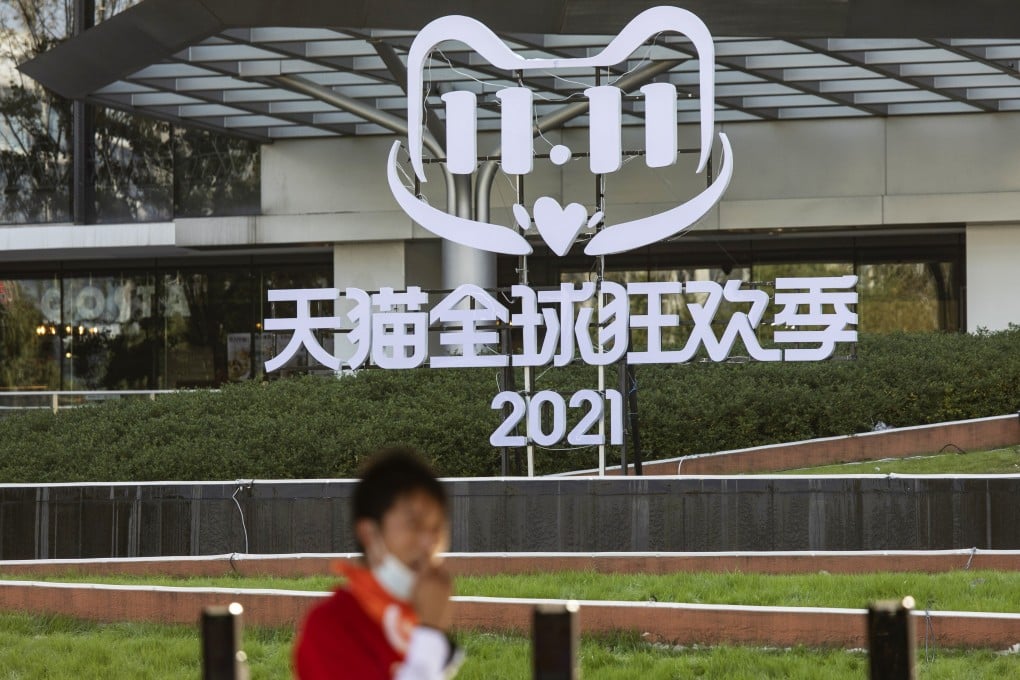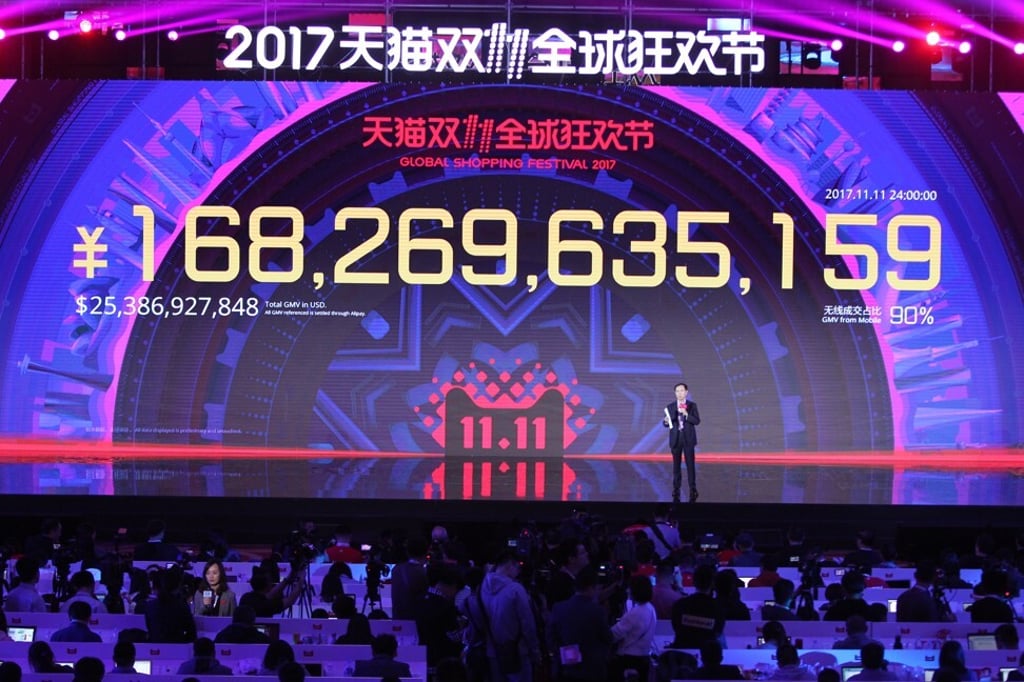Singles’ Day posts record haul despite slower pace, as China’s antitrust moves dampen world’s biggest online shopping event
- This year’s Singles’ Day was weighed down by China’s slowest economic expansion pace in decades, as growth slowed to 4.9 per cent in the third quarter
- This year, Tmall issued 100 million yuan worth of ‘green vouchers’ to encourage purchasing decisions that ‘contribute to an environmentally friendly lifestyle’

Alibaba reported that gross merchandise value (GMV) for this year’s Singles’ Day grew to a record 540.3 billion yuan (US$84.5 billion) during the 11-day campaign, marking 8.45 per cent year-on-year growth. This is the first single-digit GMV growth since Alibaba created Singles’ Day in 2009.
Hangzhou-based Alibaba is the parent of the South China Morning Post.
Singles’ Day has since evolved from a 24-hour university campus pun into a multibillion-dollar gala event featuring appearances by Taylor Swift, Mariah Carey and other celebrities, spanning weeks of heavy promotion, discounts and marketing, turning it into a bellwether event for China’s consumer spending.

“For this 11.11 shopping festival, we delivered steady and quality growth that is a reflection of the dynamic Chinese consumption economy,” said Yang Guang, a vice-president at Alibaba.